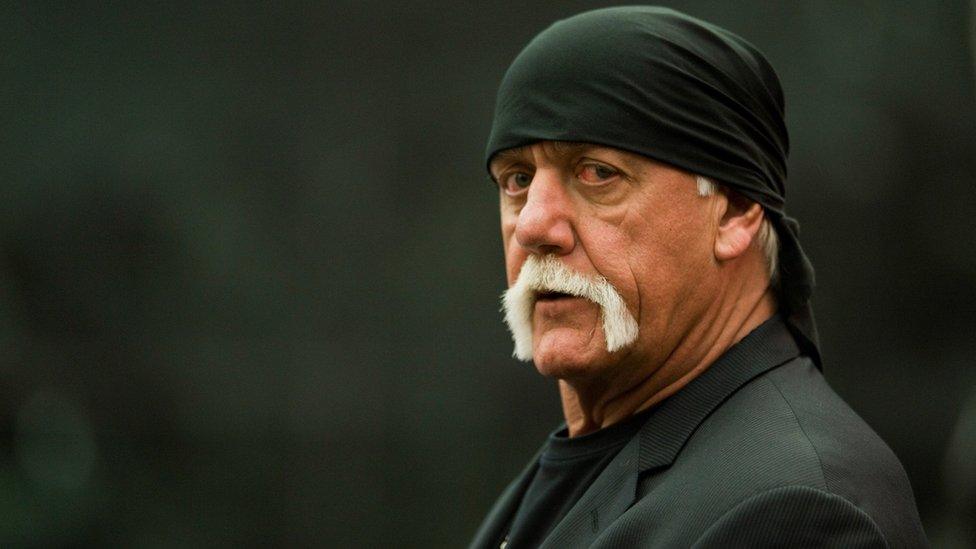PayPal founder is 'vindictive comic book villain'
- Published
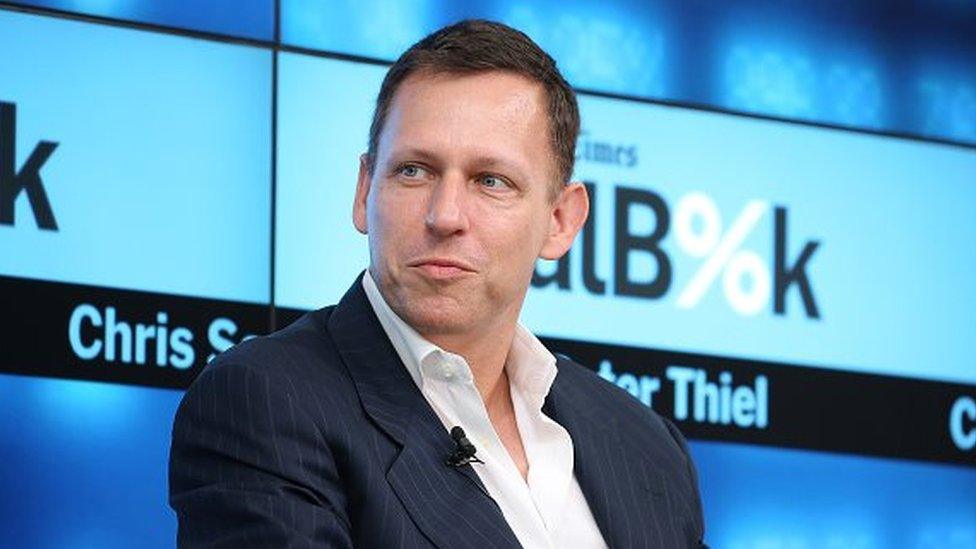
Peter Thiel said Gawker had been 'bullying people'
Gossip site Gawker has called PayPal founder Peter Thiel a comic book villain who mounted a "vindictive campaign" of lawsuits against the site.
Gawker lost a $140m lawsuit Mr Thiel funded on behalf of former wrestler Hulk Hogan two months ago and faces an uncertain future.
Mr Thiel told the New York Times, external he funded legal action as a deterrent, rather than for revenge.
Mr Thiel was outed as gay by Gawker's Valleywag blog in 2007, external.
Gawker chief executive Nick Denton likened Mr Thiel to a "comic-book villain" in an open letter, external.
Valleywag also ran a number of stories about Facebook, which provided part of Mr Thiel's estimated $2.7bn fortune. Mr Thiel is on the Facebook board.
On Thursday Gawker's Mr Denton said in the letter to Mr Thiel: "This vindictive decade-long campaign is quite out of proportion to the hurt you claim. Your plaintiff's lawyer, Charles Harder, has sued not just the company, but individual journalists... Peter, this is twisted."
"Now you show yourself as a thin-skinned billionaire who, despite all the success and public recognition that a person could dream of, seethes over criticism and plots behind the scenes to tie up his opponents in litigation he can afford better than they."
But Mr Thiel told the New York Times: "It's less about revenge and more about specific deterrence... I saw Gawker pioneer a unique and incredibly damaging way of getting attention by bullying people even when there was no connection with the public interest."
David Folkenflik, a media correspondent for US National Public Radio, said the lawsuit seemed designed to cause the company to collapse.
"The lawsuit... $140m could take it down. It appears as though the lawsuits were designed in such a way to achieve that," Mr Folkenflik told Radio 4's Today programme.
He said certain parts of the lawsuit were dropped because they could have resulted in a payout from Gawker's insurance companies, with the result that Gawker "would have to pay for it out of pocket."

Analysis
Tom Espiner, BBC Business reporter
There's another facet to this story: Mr Thiel is a director of Facebook, and the social network is trying to persuade media organisations to host their content on its platform.
It needs companies to provide content - usually for free - to give people more reasons to visit Facebook, so it can sell advertising.
But news organisations tend to feel quite strongly about freedom of speech - they are generally for it - after all, it is their stock-in-trade, and central to their own business models.
So for Facebook, it might not play too well to the crowd that one of its directors funded a lawsuit against Gawker Media - a move some have interpreted as an attack on free speech.
Facebook has an annual meeting late next month and some investors may be interested to know how it will handle the issue.
However, Mr Thiel is one of its big investors, so any real action against him by Facebook would be very surprising.

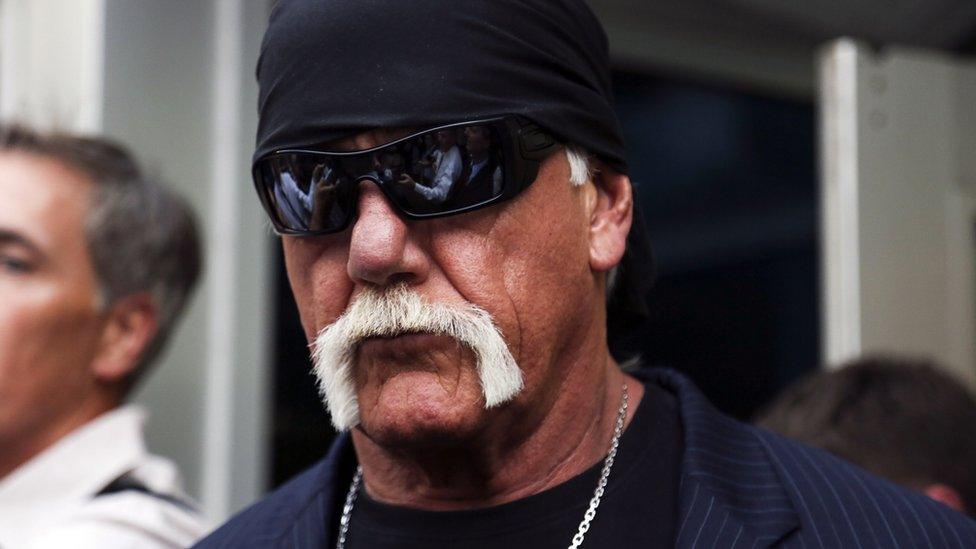
Hulk Hogan said the release of the sex tape hurt his career
Mr Thiel backed a privacy case against Gawker brought by the former professional wrestler Hogan, who won $140m damages after Gawker published a sex tape. Gawker intends to appeal.
The video was put online in 2012 after Hogan, whose given name is Terry Bollea, was secretly filmed having sex with his friend's wife.
Mr Bollea's legal team successfully argued Gawker had violated his privacy and the video was not newsworthy.
Nick Denton was ordered to pay $10m, and the journalist who posted the video and wrote the accompanying article, AJ Daulerio, must pay $100,000.
The closely watched case raised questions about freedom of the press in the digital age.
- Published27 May 2016
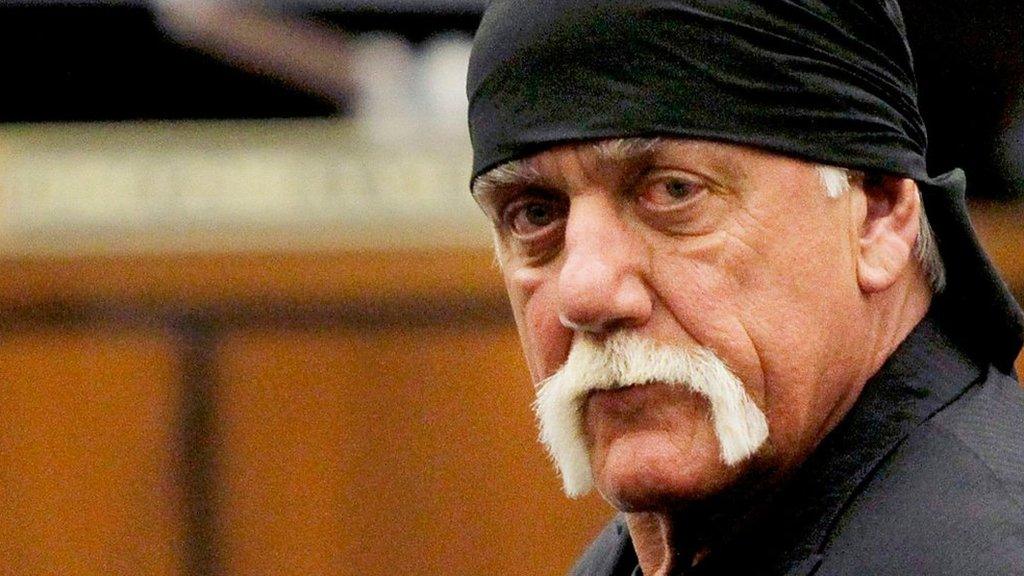
- Published21 March 2016
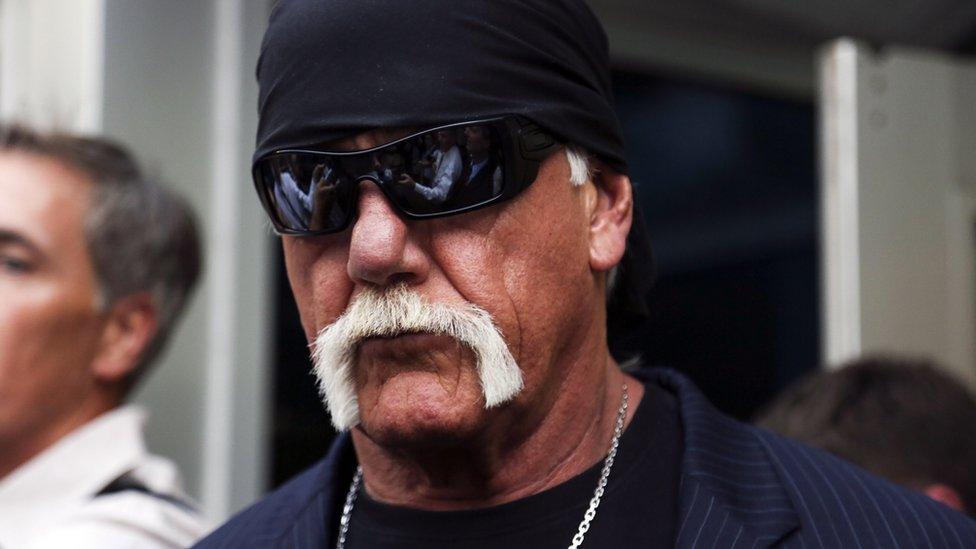
- Published19 March 2016
